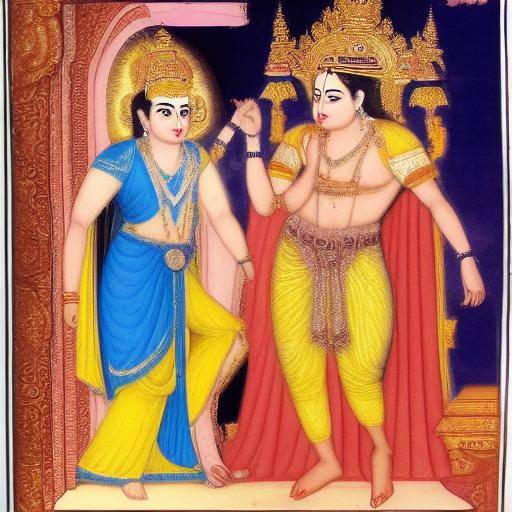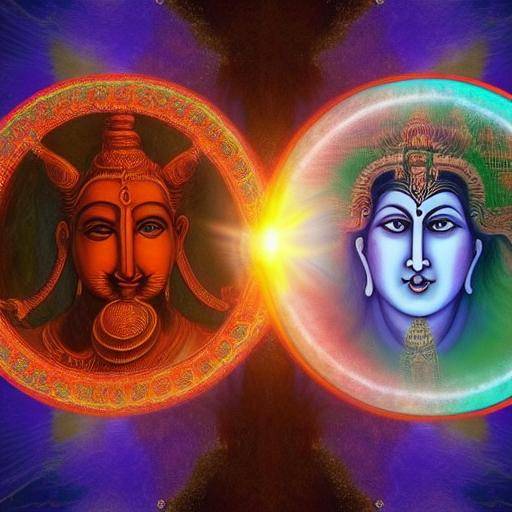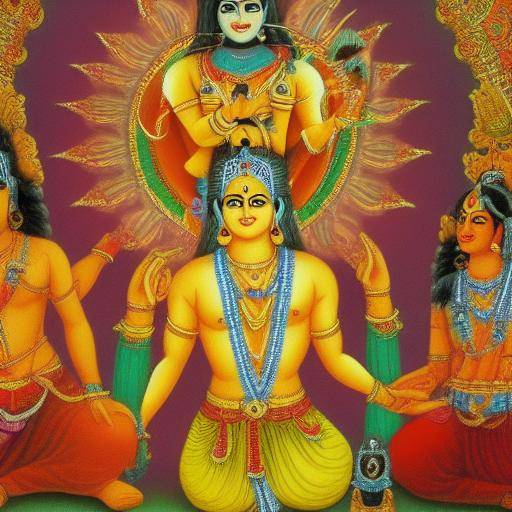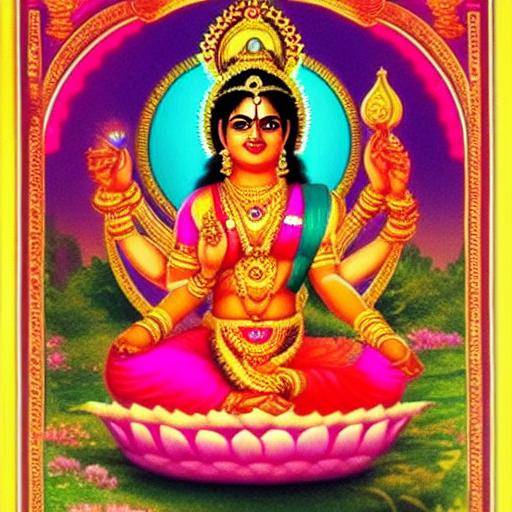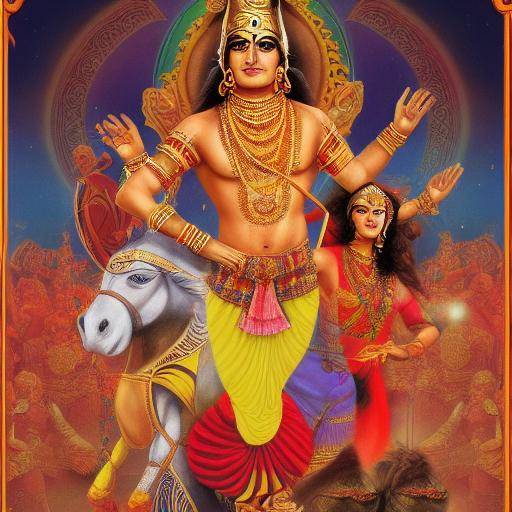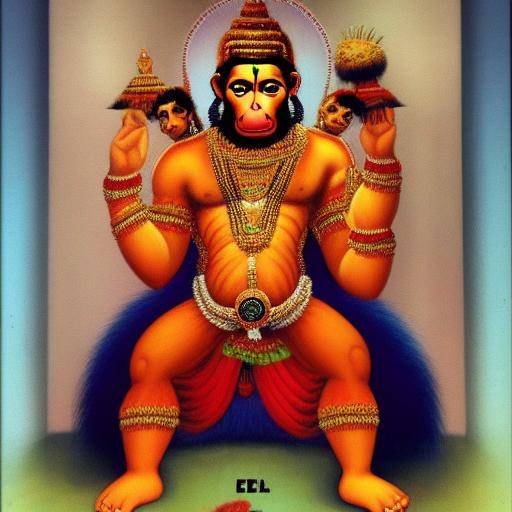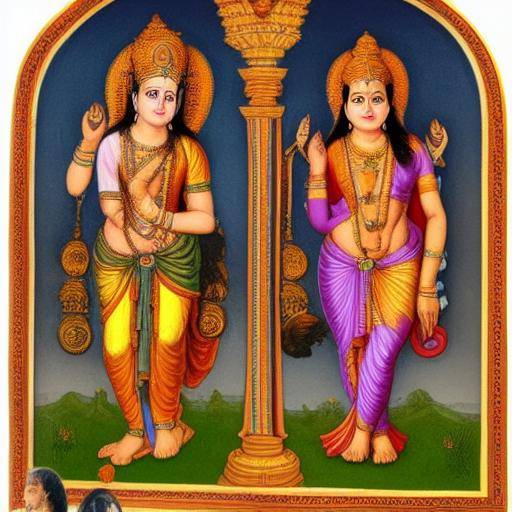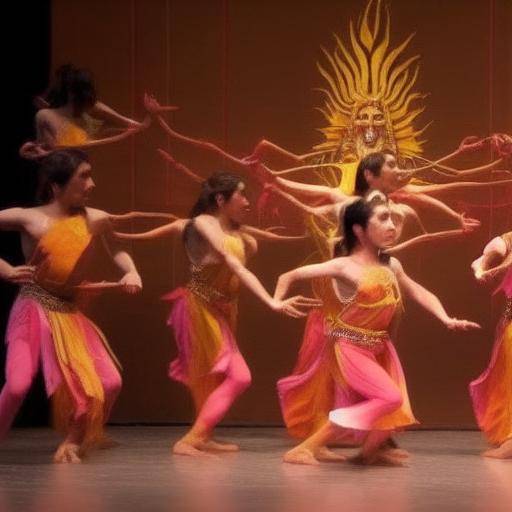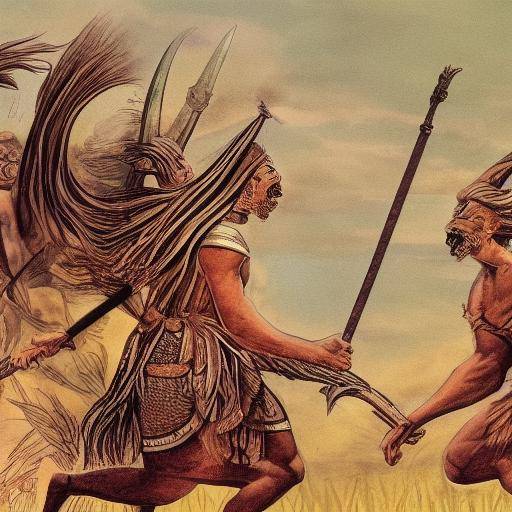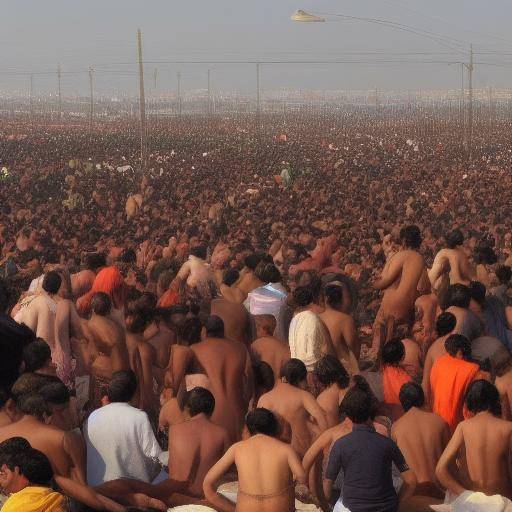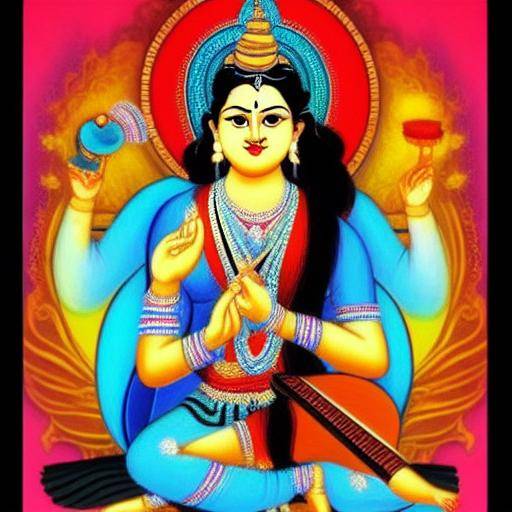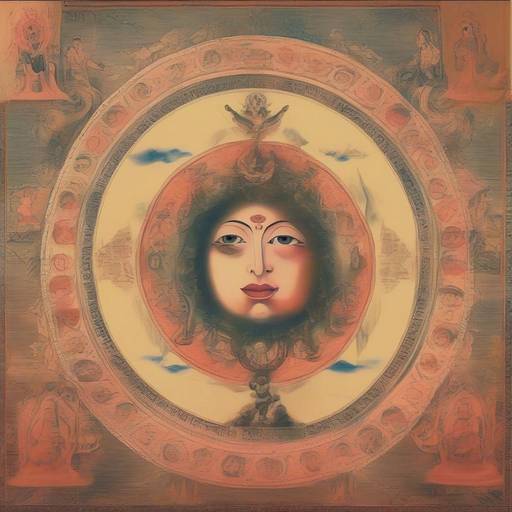
Introduction
The concepts of karma and dharma have a profound influence on Hindu mythology, influencing the beliefs, values and actions of those who follow this millennial tradition. In this article, we will explore in detail the meaning and relevance of karma, dharma and its role in Hindu myths. From its historical origin to its present application, we will unravel these central concepts in Hindu cosmovision and its impact on daily life.
History and Background
The foundations of karma and dharma go back to the ancient Vedic texts of India. Over the course of millennia, these concepts have evolved, influencing Hindu society, religion and philosophy. The first mentions of karma date back to the Rigveda, one of the oldest texts in India, where it relates to ritual actions and their consequences. On the other hand, dharma is a fundamental principle in the Vedas, which emphasizes duty, natural law and cosmic order.
The concept of karma has gone through different interpretations over time, from the teachings of upanishads to the different Hindu philosophical schools such as jainism, Buddhism and Hinduism. Similarly, dharma has acquired a wide range of meanings, from the fulfilment of social duties to the individual spiritual path.
Analysis in Deep
Karma is understood as the cosmic law of cause and effect, where a person's actions have implications for his present and future life. Therefore, the concept of karma directly influences the morality and ethical behavior of individuals. On the other hand, dharma represents the duty, order and moral law that governs human life and the universe. It is considered the basis of harmony and well-being within society.
Analyzing these concepts in Hindu mythology, we find numerous stories that illustrate the interaction of karma and dharma in the lives of the gods, semi-gods and mortals. These stories reveal how virtuous actions are rewarded, while the non-compliance with dharma carries adverse consequences.
Comprehensive review
In practice, karma and dharma influence personal decisions, social relations, caste system and spiritual search in India. Through ceremonies, rituals and ascetic practices, the followers of Hinduism seek to purify their karma and fulfill their dharma, aspiring to attain moksha, the release of the reincarnation cycle.
This worldview is also reflected in the arts, literature and traditional music, where Hindu myths and legends capture the complexity of the concepts of karma and dharma in everyday life, as well as in the spiritual and moral understanding of the world.
Comparative analysis
By comparing karma, dharma and Hindu mythology, we find that these concepts are closely intertwined, creating an ethical and spiritual framework for people who follow this tradition. Hindu mythology provides numerous examples of how these cosmic forces influence the lives of gods and mortals, revealing the consequences of actions and the redeeming power of duty.
Practical Tips and Useful Tips
- Understand that your actions have consequences, both in this life and in future reincarnations.
- Look to fulfill your dharma, finding your purpose in society and in the universe.
- Learn from the stories of Hindu gods and heroes to understand the impact of karma and dharma on everyday life.
Industry Perspectives and Expert Reviews
Experts in comparative religion, Hindu philosophy and mythology can provide a deeper insight into the role of karma and dharma in Hindu myths. His studies and analysis reveal the richness of meanings and the lasting influence of these concepts in contemporary society. Their reflections invite us to rethink the meaning of our actions and the purpose of our existence in the light of the Hindu tradition.
Case Studies and Real Life Applications
Throughout history and today, karma and dharma have shaped the decisions and actions of millions of people in India and around the world. Stories of individuals who, following their dharma, have managed to overcome seemingly insurmountable challenges, as well as examples of the law of karma manifesting themselves in unexpected circumstances, illustrate the validity and relevance of these concepts in everyday life.
Future Trends and Predictions
As the world is globalized, the influence of Hindu mythology and its teachings on karma and dharma reach an ever wider audience. In the future, these lessons are expected to be integrated into holistic approaches to personal, social and environmental well-being. In addition, the diffusion of knowledge about Hindu mythology, including the concepts of karma and dharma, is expected to continue in an increasingly interconnected world.
Conclusion
Karma and dharma are inseparable from Hindu cosmovision, enriching their myths, legends and spiritual teachings. Through these ideas, a model of existence is presented in which individual actions contribute to cosmic harmony. Understanding these concepts not only enriches our appreciation of Hindu mythology, but also invites us to reflect on our own actions and purposes in life.
Frequently asked questions
What is the difference between karma and dharma in Hindu mythology?
Karma refers to the cosmic law of cause and effect, where actions have consequences, while dharma relates to the duty, moral order and natural law that governs human life and the universe.
How do karma and dharma apply in the daily life of a follower of Hinduism?
The followers of Hinduism seek to fulfill their dharma, which includes social, moral and spiritual duties, to purify their karma and achieve moksha, the release of the reincarnation cycle.
How do karma and dharma influence India's society and culture?
These concepts have profoundly impacted on morality, social relations and the structure of Indian society, influencing arts, literature and traditional music.
How can we learn from Hindu myths to understand karma and dharma?
Studying the Hindu myths and experiences of the gods and heroes can provide a deeper understanding of the interaction between karma and dharma in human life, as well as practical lessons on ethical and spiritual life.
What is the potential impact of global dissemination of these concepts?
As Hindu mythology spreads around the world, the concepts of karma and dharma are expected to influence holistic approaches to personal, social and environmental well-being, as well as intercultural and spiritual understanding.
How can we apply the teachings of karma and dharma in our daily life, regardless of our religion or tradition?
Lessons on karma and dharma can inspire us to reflect on our actions, aspirations and relationships with others, promoting greater awareness and responsibility in our lives.
In short, karma, dharma and Hindu mythology offer a unique perspective on human morality, purpose and interaction, providing valuable lessons that transcend the borders of religion and culture. Its lasting influence in contemporary society and offers a broad field for reflection and exploration in the search for meaning and harmony in life.
With this article, it has been intended to shed light on these fundamental concepts, their influence on Hindu mythology and their relevance in today's society. We hope that readers will find in this analysis a source of inspiration and reflection, enriching their understanding of culture, ethics and spirituality.

